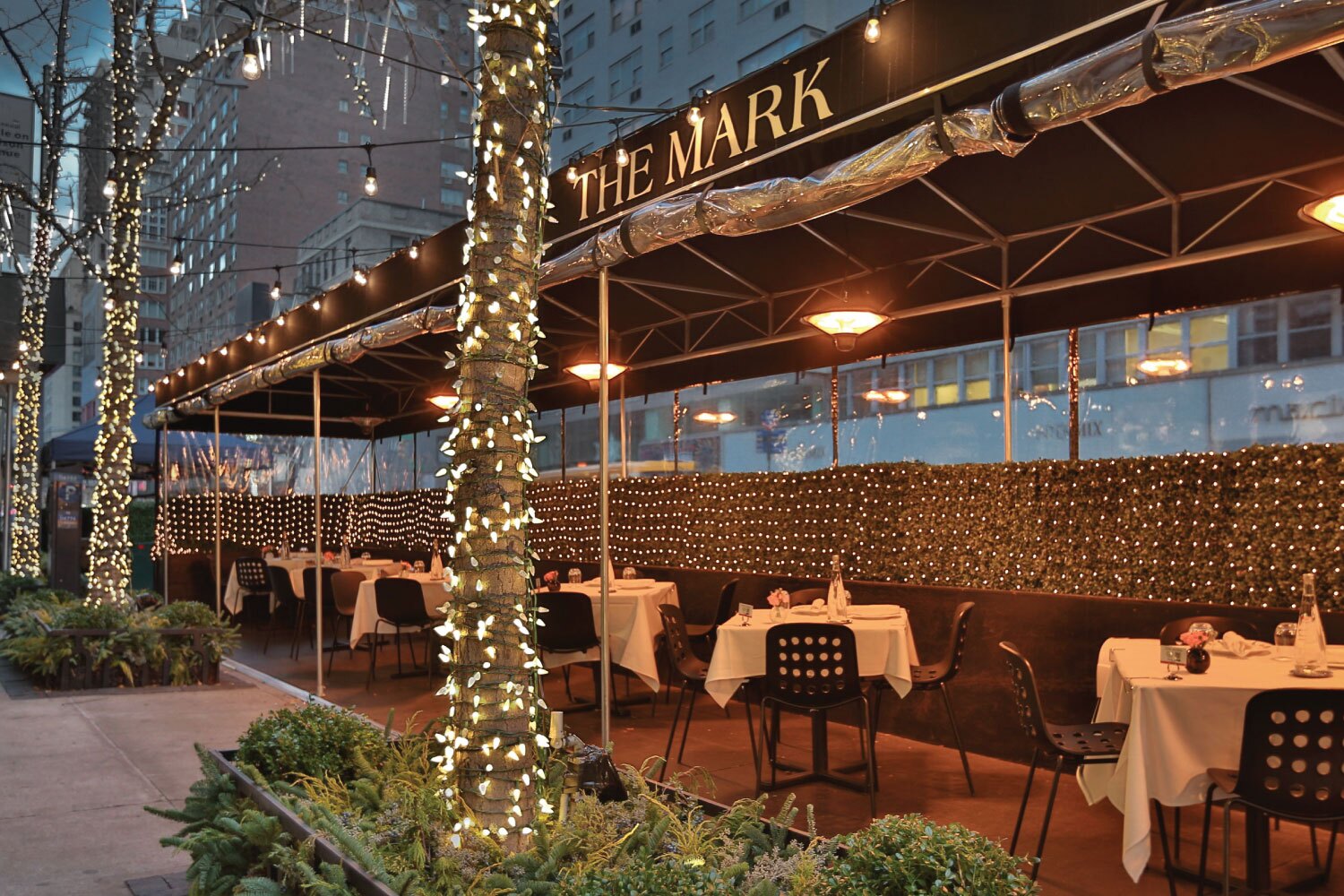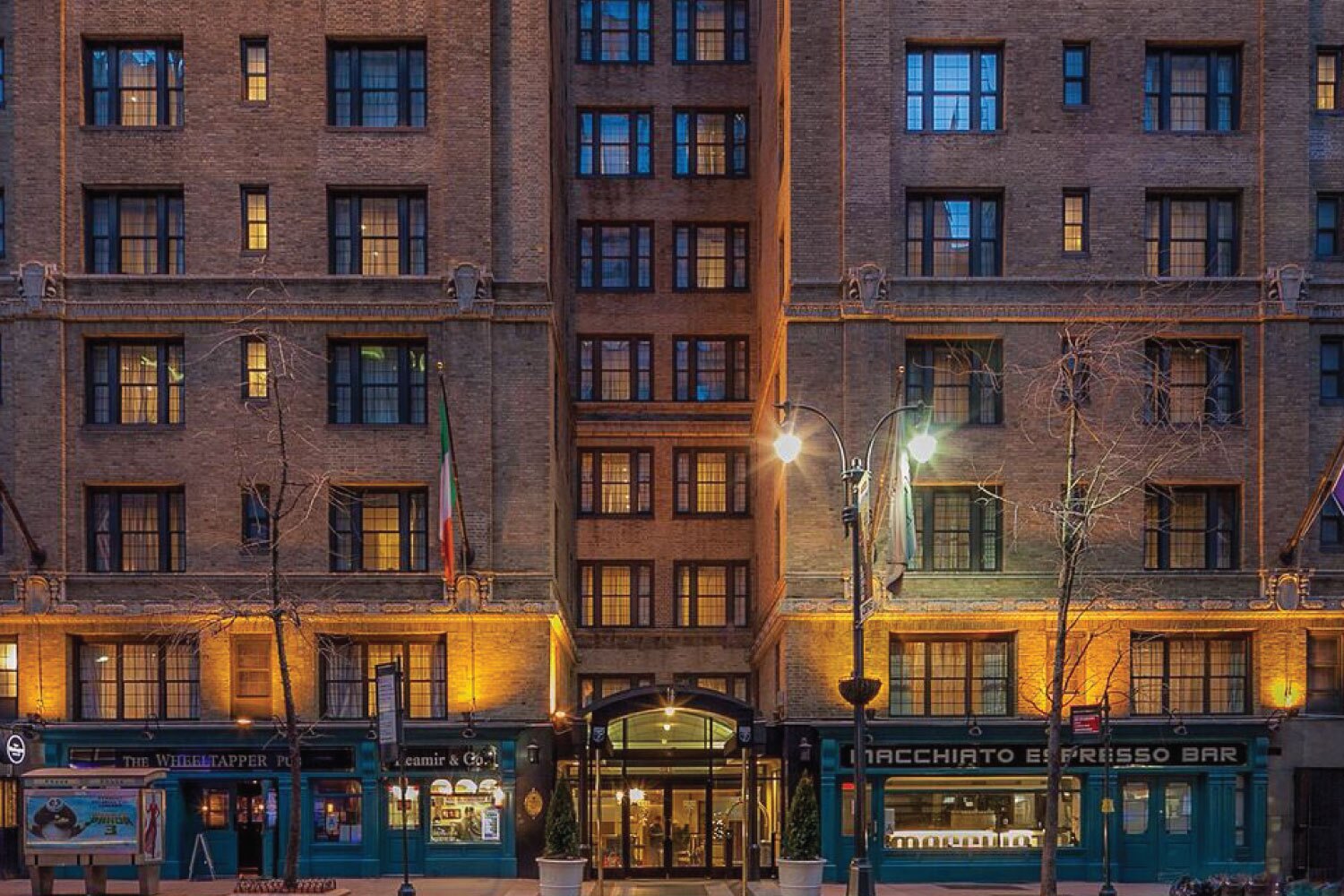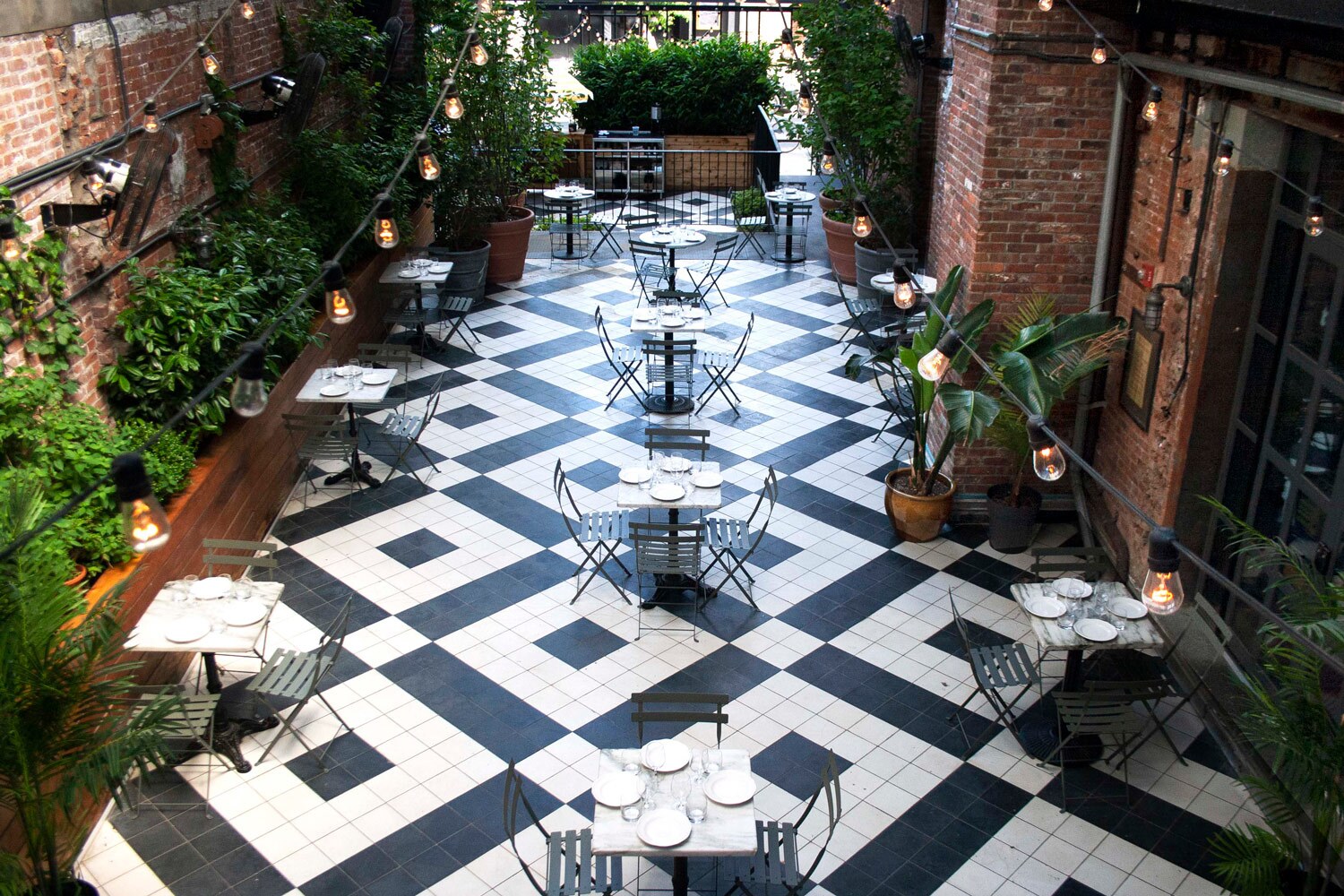New York City’s hotel industry has suffered disproportionately from the pandemic, which has been particularly challenging for owners and operators of smaller and independent hotels.
With hotel demand at historic lows and profits plunging, operating costs remained and in some cases grew. Hotels with brand support have been able to defer some costs amid the crisis, but that's not an option for independents.
John Fitzpatrick owns two namesake hotels in Manhattan in prime locations. The Fitzpatrick Manhattan, on Lexington Avenue, is in a prime shopping and transportation hub; and the Fitzpatrick Grand Central sits across the street from Grand Central Terminal.
But the benefits of location haven't been enough during the pandemic to offset the costs of remaining open, which include maintenance and hefty real estate taxes, while bookings have been low.
Peter Lawrence, owner of the Wythe Hotel in Brooklyn, a popular lifestyle property, said he has tried “everything,” including offering takeout food and outdoor and private dining, as well as booking rooms as remote offices. Some strategies have been successful and others less so, he said.

The Mark, a luxury hotel on the Upper East Side of Manhattan, has fared somewhat better, in part because the property is less reliant on commuters and because there is some persistent demand among luxury travelers, General Manager Manuel Martinez said.
Vijay Dandapani, president of the Hotel Association of New York, said overall the past year has been "brutal" for operators of small hotels, and the worst is yet to come for some, which will be forced to close due to inability to pay the bills.
A former operator of small hotels in the city himself, Dandapani said many owners were able to deal with their first real estate payment last summer, but the most recent bill early this year was even more daunting.
Excluding homeless people staying in hotels, occupancies have been under 10% on average through most of the pandemic, Dandapani said. Paycheck Protection Program funds from the first round of federal COVID-19 relief has long since run dry. Even hotels that shut down temporarily have to keep staff on-property for safety and insurance reasons. Meanwhile, the city and state have done little to help, and charge “usurious penalties” when real estate taxes are not paid, he said.
According to the Department of City Planning, 146 of the city’s 705 hotels, representing about a third of its hotel rooms, have closed. Dandapani disputed that figure, saying it was based on older tax data. He said the number is more like 200.
Some closed hotels will be purchased at a huge discount, Dandapani said, noting some operators believe New York City's hotel industry overbuilt before the pandemic, and they see a silver lining in a reduced inventory.
Consolidating to Survive
Early in the crisis, Fitzpatrick closed his uptown hotel and consolidated operations at the Grand Central property, which benefits from more restaurant and bar space as well as a designated outdoor dining area that was opened before the pandemic and had been serving guests year-round.
His hotels moved early to implement health protocols, including technology for temperature screenings at the front desk, he said. On arrival, guests receive a welcome kit with a pair of gloves, a mask, a plastic cover for the remote control, gel and, in the room, a set of slippers. He said some bigger hotels couldn’t do what his properties have on the health front. One couple that checked in because of the snowstorm stayed for more than four nights because they felt safer there than at home, he said.
Despite those efforts, demand continued to lag, and the normally busy Christmas season was a "complete disaster" for bookings, Fitzpatrick said, noting few guests came in from the suburbs as is typically the case.
When the city’s hospitals became overwhelmed with patients in the spring, there was consideration to move a maternity ward into the Lexington Avenue hotel but it never came to that, he said.
One tenant at the uptown hotel is a couple who moved in a month before the pandemic. "They are happy to be there,” Fitzpatrick said.
Despite having so few guests, staff has to walk the floors every night, he said. At one point, they discovered a water leak. There are also security and fire safety officers that remain on the payroll.

At the Grand Central hotel, there has been only one night in recent months — during a snowstorm — when there were as many as 50 rooms occupied, he said. Otherwise, no more than 30 nights have been booked. The food and beverage revenue from the outdoor restaurant does cover some salaries, he said.
Still, the open hotel maintains a staff of housekeepers, bellmen and food and beverage workers. Despite the losses, Fitzpatrick had to pay $1.2 million in real estate taxes last summer for the two hotels, despite those taxes supposedly being based on revenues and valuation. Another payment was due early this year.
As is typical in New York, Fitzpatrick’s employees are unionized. He said he has been paying health benefits and other supplemental union contract benefits. Some hotels paid full severance, but he said he hopes to rehire everyone. Some employees have been on staff for more than 30 years, and he has had to lay off 80% of them.
One thing working in his favor, Fitzpatrick said, is that after 9/11 he brought his debt way down and has spent the past 20 years getting it down to zero. While that debt is now going up again, he had a financial cushion many don't.
A Luxury Hotel Hangs In
Martinez said his hotel, The Mark, was one of the last luxury hotels to temporarily close in the early days of the pandemic — on March 27, 2020 — and one of the first to reopen when it resumed operations June 15.
Demand soon picked up, with a significant bump coming from loyal clientele. As is typical, there has been leisure traffic during weekends, and business travel during the week — most of it from the tri-state area of New York, New Jersey and Connecticut.
Many people simply needed a break from home, including those living in the neighborhood, he said. They took advantage of room service and the ability to enjoy a good meal. The property also hosted several small weddings. In addition, there were guests who came for medical reasons.
The Mark is customizing stays based on guest requests, Martinez said. A desk, printer and scanner can be provided in a suite for remote workers, for example. Fifty of the hotel's 152 rooms are suites, which allows some flexibility, he said.
When the property closed, almost all staff was furloughed while some engineering and security employees were left behind to take care of the property. The hotel is now at about 40% staffing, he said. It is partially a union property, and Martinez said relations with the union are good.
“We all understood we wanted to reopen, but safety and security are paramount for us and them,” he said.
The union put requirements on the table “and we were on the same page,“ he said. The Mark is the only hotel that its owner manages, and it is part of the Preferred Hotels & Resorts network.
One of the more positive developments has been in food and beverage. Martinez said his main background is in that area, and he saw this as a project to be tackled. When the hotel reopened, there was only room service. In July, outdoor dining started and the hotel ordered tables and chairs, eventually offering 80 to 90 outdoor seats. Indoor dining, despite a 25% capacity, did well, though it was shut down again in mid-December. It is now set to begin again on Valentine’s Day at 25% capacity.
The hotel reopened with extensive health standards in place, including high-temperature steam cleaning of rooms when guests departed. There are hand-sanitizing stations, limited elevator capacities and a guest safety kit which includes hand sanitizer and anti-bacterial towels.
“We don’t have a corporate office, and we were able to make decisions to set high standards on health and safety," Martinez said.
As of mid-January, rates were 20% higher than at the same time last year, driven in part by long-stay guests. He attributes demand to customers feeling safe, the success of the restaurant and the neighborhood. While he would not disclose the hotel's occupancy, Martinez said it is higher than the city average.
Trying 'Everything' in Brooklyn

At the Wythe, outdoor dining has spurred some needed business, Lawrence said.
A street-level garden was turned into an outdoor version of the hotel’s restaurant in the warmer months and that worked well, as did sidewalk and street seating. Also popular were private dining rooms as the weather cooled, but they were shut down along with all indoor dining.
The hotel also hosted a film production company using a floor of the hotel as an office, he said.
The Wythe paid its staff to stay home for four weeks in March, and then almost everyone was furloughed. The first round of Paycheck Protection Program loans were spent in eight weeks before staff was furloughed again. Most of the restaurant staff was brought back, only to be furloughed again when indoor dining was closed down.
Financially, the hotel started 2020 with a good amount of cash reserves, but his partner has recently reinvested in the property to keep it afloat, Lawrence said.
Looking Ahead
Although the outlook looks dire now, Fitzpatrick said he is trying to be hopeful. One reason for hope is the arrival of COVID-19 vaccines. The other is that so many competitors have closed and may remain closed.
“Our only hope is that we can pick up business from those properties,” he said.
On the positive side, people want to travel, and many have the money to do it, he said. Once the vaccine was announced, the phone began ringing for September bookings.
He said his chief financial officer is looking through the new federal relief package to figure out how to make the most of it. It's likely it will be September before any serious business is being done, though he said he hopes he's wrong.
Lawrence plans to bring staff back as soon as possible and to reopen the indoor restaurant soon. His events team has been working continuously to reschedule events and book new ones for later this year and 2022.
“I expect to see a tsunami of pent-up demand this year as people want to get out, get away, sit at a bar with friends, sit at a bar with strangers," he said.
People will return as they are able to and feel safe to, he said. He expects a good number of business travelers and corporate group events “as businesses start to regather their teams and get refocused on the future.“
Martinez said he believes business will ramp up beginning in April and hopes that Broadway’s theaters will reopen later this year.
“We want to get back to the crazy, hectic, noisy, diverse city that we all love,” he said.
